|
What separates the living from the dead? A heart beat or a pulse may be the vital signs that spring to mind, which suggests that a person is dead when their heart stops beating. However, new research shows that the natural process of death is not so straightforward, and takes us a step closer to understanding the complexity of dying.
Today in The Conversation Canada, Carleton University PhD candidate Amanda van Beinum and University of Ottawa critical care physician Sonny Dhanani and their research colleagues take a closer look at what happens after a monitor shows a heart has stopped beating. After studying hundreds of records of intensive care patients, they found that the classic “flatline” is more complicated than you might think.
Also today:
All the best.
|
Patricia Nicholson
Health + Medicine Editor
|

|
|
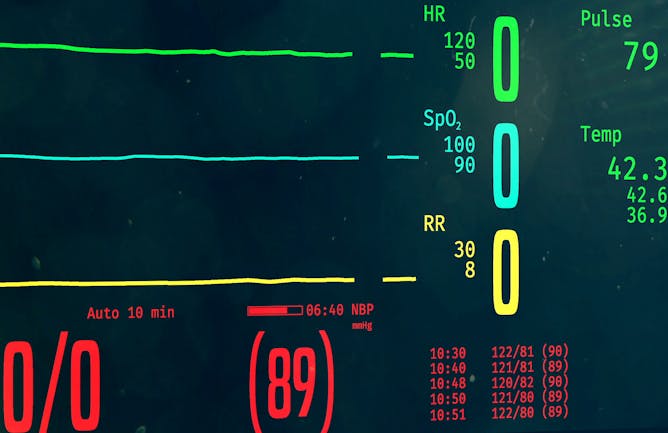
New research shows that heart activity may not always end with a flatlined monitor.
(Shutterstock)
Amanda van Beinum, Carleton University; Sonny Dhanani, L’Université d’Ottawa/University of Ottawa
Is a person dead when their heart stops beating? It turns out that the classic “flatline” of death is not so straightforward.
|

A young girl places a candle during a vigil for the victims of the mosque shooting on Jan, 30, 2017 in Québec City. In the years since the attack, little has been done to combat the Islamophobia that caused it.
THE CANADIAN PRESS/Paul Chiasson
Jasmin Zine, Wilfrid Laurier University
Four years since the violent attack on worshippers at Québec City's central mosque, the federal government has said it will honour the victims with a national day of remembrance.
|

The Galapagos Marine Reserve is home to nearly 3,000 marine species.
(Shutterstock)
Julie Reimer, Memorial University of Newfoundland
Marine protected areas will be important for achieving the ocean Sustainable Development Goals.
|
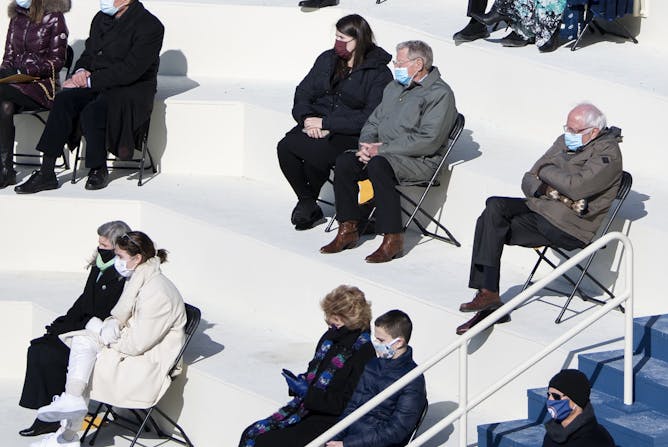
Sen. Bernie Sanders (far right) attended the 59th Presidential Inauguration at the U.S. Capitol in Washington on Jan. 20, 2021.
(Caroline Brehman/Pool via AP)
Anthony Bonato, Ryerson University
Our social connections and interactions form networks. Studying these networks reveal the ways in which both memes and viruses travel through populations
|

Don’t wait for teens to come to you. Engage them in conversation.
(Shutterstock)
Marie-Claude Geoffroy, McGill University; Anthony Gifuni, Stanford University
Suicide prevention experts believe parents can engage in an honest and safe conversation about suicide with kids.
|
La Conversation Canada
|

La technicienne médicale Amira Doudou prépare des échantillons à l’Institut hospitalo-universitaire des maladies infectieuses de Marseille, en France, le 13 janvier 2021, pour étudier le variant hautement contagieux de la Covid-19.
(AP Photo/Daniel Cole)
Sarah Otto, University of British Columbia
De multiples variantes de la Covid-19 circulent dans le monde entier et deviennent de plus en plus courantes. Ces mutations peuvent altérer la capacité du virus à s’implanter dans nos cellules.
|
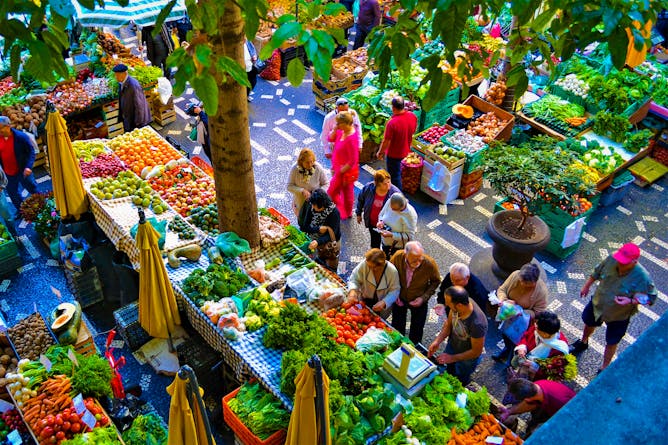
Un marché fermier en ville. La pandémie a accéléré l'attrait de la consommation locale et de l'agriculture soutenue par la communauté.
Shutterstock
Axel Chiche, Université du Québec à Montréal (UQAM); Ugo Lachapelle, Université du Québec à Montréal (UQAM)
Une meilleure collaboration entre fermiers et villes pourrait permettre de localiser les points de livraison dans des sites attrayants et conviviaux et de renforcer la distribution alimentaire.
|
New podcasts from The Conversation
|

IVASHstudio/Shutterstock
Gemma Ware, The Conversation
There are lots of different ways to listen to The Conversation's podcasts.
|
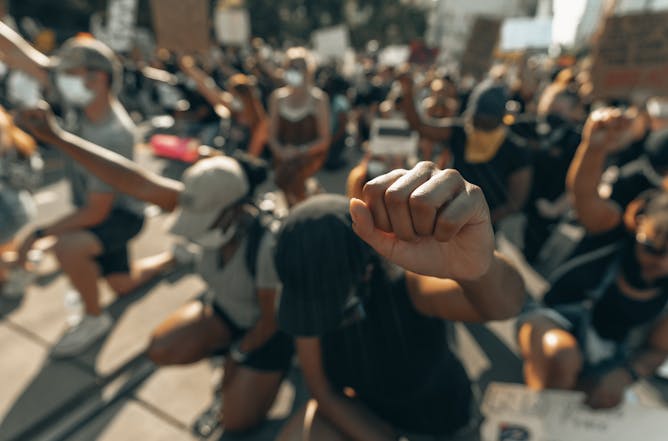
Fists raised in solidarity for George Floyd in Charlotte, N.C.
(Unsplash/Clay Banks)
Vinita Srivastava, The Conversation
Don’t Call Me Resilient is a provocative podcast about race that goes in search of solutions for those things no one should have to be resilient for.
|
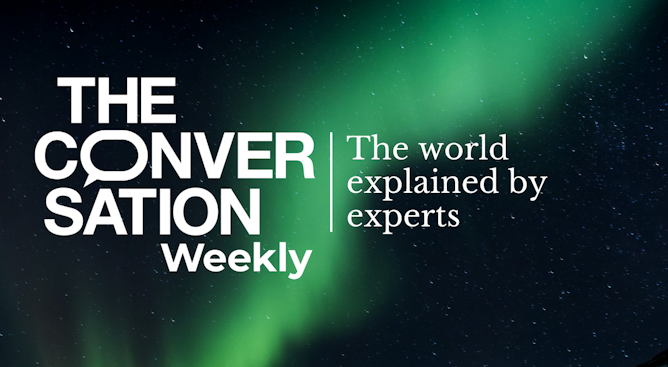
Gemma Ware, The Conversation; Daniel Merino, The Conversation
🎧 Listen to the trailer for The Conversation Weekly, a new podcast.
|
Science + Technology
|
-
Chris Jiggins, University of Cambridge; Kathleen Darragh, University of California, Davis
The stench was once thought to originate from plants, but scientists have now pin-pointed its true origin.
|
|
Environment + Energy
|
-
Jessie Creamean, Colorado State University; Thomas Hill, Colorado State University
New research shows that permafrost contains huge amounts of particles that make it easier for cloud moisture to freeze. Thawing permafrost is releasing these ice-nucleating particles.
|
|
|
|
| |
| |
| |
| |
| |
| |
|
|